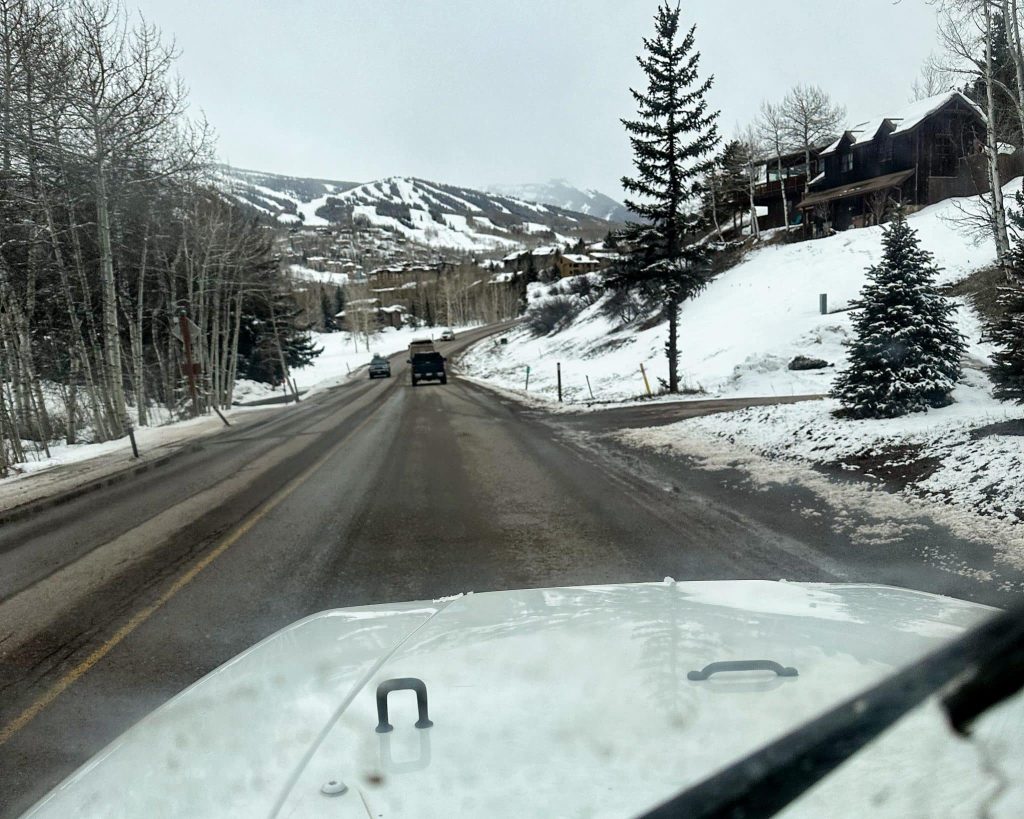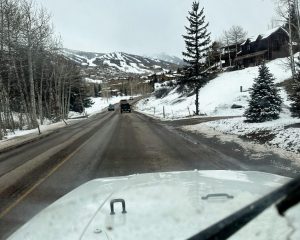Colorado State Patrol calls on drivers to be prepared for winter conditions after responding to more than 2,000 crashes last November
Colorado’s commercial vehicle chain law and passenger vehicle traction law have been in effect since September

Austin Colbert/The Aspen Times
The Colorado State Patrol is calling on drivers to prepare their vehicles for winter as colder weather once again descends on the mountains.
Early-season winter weather often catches drivers in the mountains unprepared, resulting in an increased number of crashes that could be prevented with proper preparation, according to a news release from the State Patrol.
“The first few snow and ice events of every season seem to create a bit of havoc on our roadways,” Colorado State Patrol Chief Col. Matthew Packard said in a statement. “It’s time for drivers to change their mindset and driving behaviors to match road conditions.”
There were more than 2,000 crashes statewide last November, the most crashes of any winter month, according to the State Patrol. Most of those crashes, about 85%, resulted in property damage.
Colorado’s commercial vehicle chain law and passenger vehicle traction law have been in effect since Sept. 1. The laws require commercial vehicles to carry chains and passenger vehicles to have proper traction devices.
For passenger vehicles traveling on any portion of Interstate 70 between Morrison and Dotsero, the state law requires that drivers carry tire chains for two or more tires, an approved alternate traction device or tires with a tread depth of at least three-sixteenths of an inch rated for either “all weather” or “mud and snow.” Drivers could receive a $50 fee with a $17 surcharge for failing to comply with this law.
Ahead of winter, it is also important for drivers to check the air pressure in their tires, which can drop as the air temperature becomes colder; check the fluids in their vehicle, including coolant and antifreeze; and stash a snow scraper in the vehicle, according to the State Patrol. In case of emergencies, drivers are advised to have a kit with anything that they might need if they slide off the road, including a shovel, warm clothes, thermal blankets, snacks and water.










